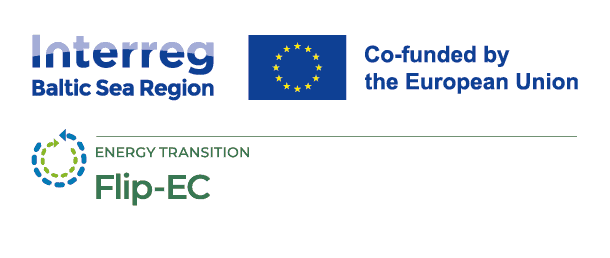Flip-EC Partner Meeting
Project: Flip-EC
Physical Meeting
26. - 27. November 2025

Flip-EC focuses on empowering a wide range of building users — such as students, teachers, municipal staff or citizens — to adopt more energy-conscious habits in everyday activities like heating, ventilation, and lighting. Flip-EC will deliver key outputs in three phases: preparation, piloting, and transfer. These include developing participatory governance models, stakeholder engagement strategies, and a framework for monitoring energy savings, durability, and social impact. In the piloting phase, the project will test and refine solutions in real-world settings, particularly schools and municipal buildings. The final phase will establish a digital platform for learning and resources, alongside Train-the-Trainer workshops for broader replication.
Buildings are responsible for approximately 40% of energy consumption and around 36% of greenhouse gas emissions in Europe. These emissions mainly arise from construction, use, renovation, and demolition. Public buildings play a special role in this context, as the public sector has a responsibility to lead by example in implementing energy efficiency measures and to credibly support climate goals. Nevertheless, the annual renovation rate of public buildings remains low. In fact, technical, operational and behavioural measures must go hand in hand. A study by the International Energy Agency (IEA) indicates that a combination of these measures can achieve up to a 30% reduction in energy consumption. Unfortunately, unclear responsibilities and diffusion of responsibility hinder progress, leading to stagnation and frustration. The diverse uses and user groups of public buildings and varying structural conditions complicate efforts to enhance energy efficiency and present unique obstacles. In order to tackle these challenges, local public authorities and the building users require better cooperation and participation processes and knowledge-base about effective behavioural measures. Focus of Flip-EC is on establishing the commitment and involvement of the users, based on the incremental but long-lasting behavioural change. Flip-EC solves structural hurdles, diffusion of responsibilities and lack of awareness of both target groups, brings them and their interests together to ultimately promote a faster and more durable implementation of energy-saving measures and ensure efficient and needs-based operation of public buildings.